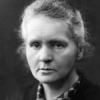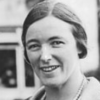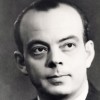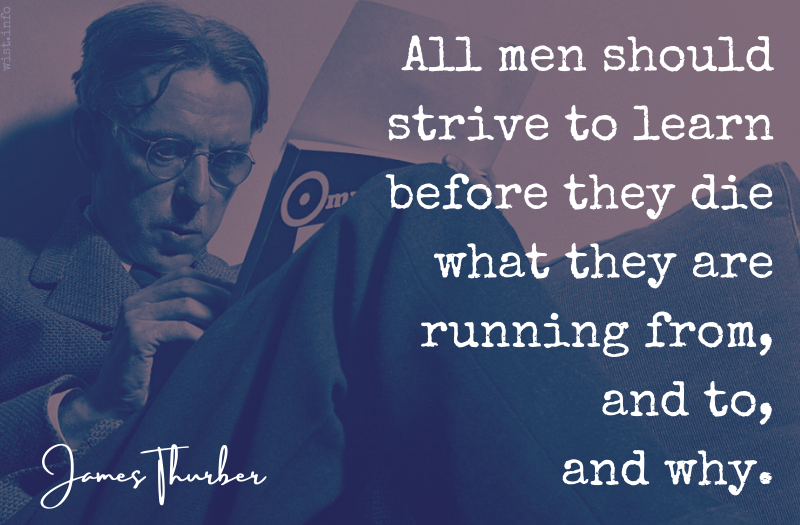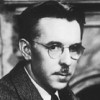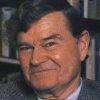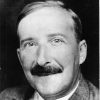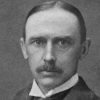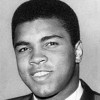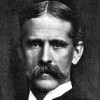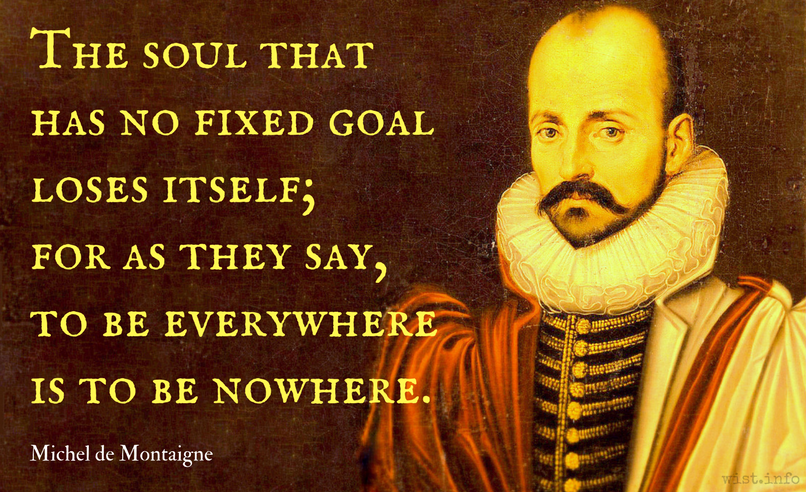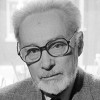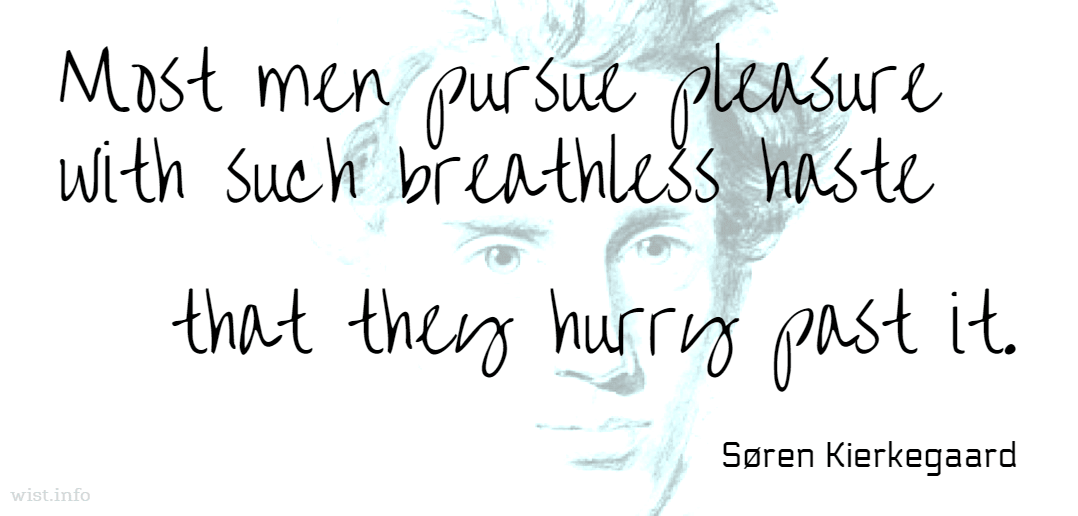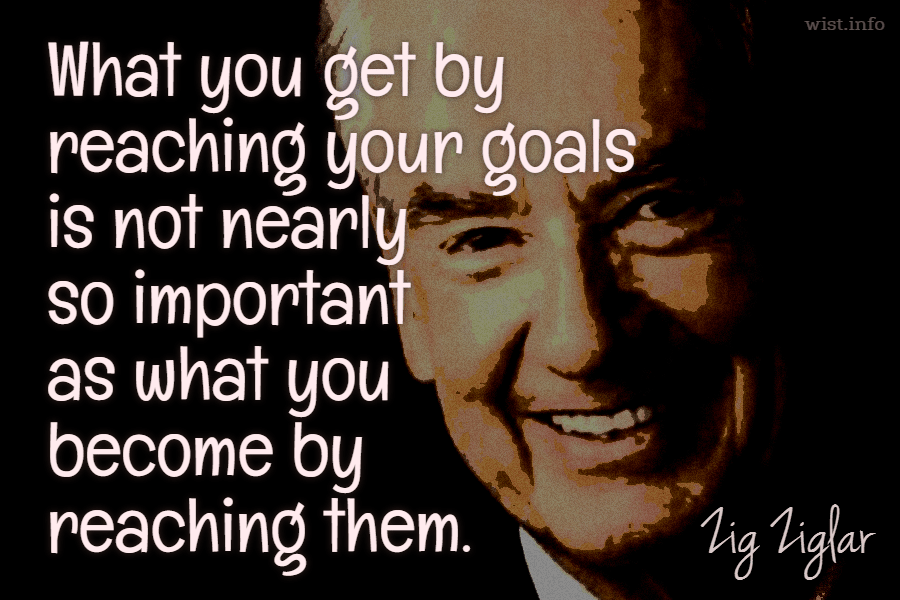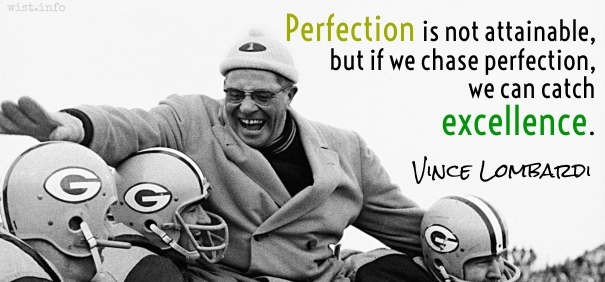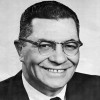If well thou hast begun, go on fore-right
It is the end that crowns us, not the fight.
Quotations about:
goal
Note not all quotations have been tagged, so Search may find additional quotes on this topic.
One should guard against preaching to the young man success in the customary sense as the aim of life. For a successful man is he who receives a great deal from this fellowmen, usually incomparably more than corresponds to his service to them. The value of a man, however, should be seen what he gives. and not in what he is able to receive.
Albert Einstein (1879-1955) German-American physicist
Speech (1936-10-15), Convocation of University of New York, Albany [tr. Arronet]
(Source)
Collected in "On Education" (1936), Out of My Later Years, ch. 9 (1950).
When we are working at a difficult task and strive after a good thing we fight a righteous battle, the direct reward of which is that we are kept from much evil.
Focusing your life solely on making a buck shows a certain poverty of ambition. It asks too little of yourself. You need to take up the challenges that we face as a nation and make them your own. Not because you have a debt to those who helped you get here, although you do have that debt. Not because you have an obligation to those who are less fortunate than you, although I do think you do have that obligation. It’s primarily because you have an obligation to yourself. Because individual salvation has always depended on collective salvation. Because it’s only when you hitch your wagon to something larger than yourself that you realize your true potential.
Barack Obama (b. 1961) American politician, US President (2009-2017)
Speech (2005-06-04), Commencement, Knox College, Galesburg, Illinois
(Source)
I came back from that holiest of waves
remade, refreshed as any new tree is,
renewed, refreshed with foliage anew,
pure and prepared to rise towards the stars.
[Io ritornai da la santissima onda
rifatto sì come piante novelle
rinovellate di novella fronda,
puro e disposto a salire a le stelle.]Dante Alighieri (1265-1321) Italian poet
The Divine Comedy [Divina Commedia], Book 2 “Purgatorio,” Canto 33, l. 142ff (33.142-146) (1314) [tr. Kirkpatrick (2007)]
(Source)
Conclusion of Dante's journey through Purgatory, his soul having been cleansed drinking the waters of the Eunoë. As with Inferno and Paradisio, Purgatorio ends on the word "stars."
(Source (Italian)). Alternate translations:
From that pure fount, with renovated pow'r
I rose, prepar'd to leave that happy Shore,
And mount among the Stars, on ardent wing.
[tr. Boyd (1802), st. 27]
I return’d
From the most holy wave, regenerate,
If ’en as new plants renew’d with foliage new,
Pure and made apt for mounting to the stars.
[tr. Cary (1814)]
Returned I from that holiest of waves
Refreshed in spirit, like the new-sprung plants,
Renewed with foliage suited to their wants,
Pure, and disposed to climb unto the stars.
[tr. Bannerman (1850)]
From the most holy water I returned
Regenerate, in the manner of new trees
That are renewed with a new foliage,
Pure and disposed to mount unto the stars.
[tr. Longfellow (1867)]
I turned back from the most holy wave refect in such wise as new plants renewed with new foliage, pure and disposed to mount up to the stars.
[tr. Butler (1885)]
I turnèd back from those most holy waves
Created fresh, as plants made new once more,
Renewèd through the birth of new green leaves,
Pure, and prepared unto the stars to soar.
[tr. Minchin (1885)]
I returned from the most holy wave, renovated as new plants renewed with new foliage, pure and disposed to mount unto the stars.
[tr. Norton (1892)]
I came back from the most holy waves, born again, even as new trees renewed with new foliage, pure and ready to mount to the stars.
[tr. Okey (1901)]
From the most holy waters I came forth again remade, even as new plants renewed with new leaves, pure and ready to mount to the stars.
[tr. Sinclair (1939)]
Back from that wave's most holy privilege
I turned me, re-made, as the plant repairs
Itself, renewed with its new foliage.
Pure and disposed to mount up to the stars.
[tr. Binyon (1943)]
From those most holy waters, born anew
I came, like trees by change of calendars
Renewed with new-sprung foliage through and through,
Pure and prepared to leap up to the stars.
[tr. Sayers (1955)]
I came back from those holiest waters new,
remade, reborn, like a sun-wakened tree
that spreads new foliage to the Spring dew
in sweetest freshness, healed of Winter's scars;
perfect, pure, and ready for the stars.
[tr. Ciardi (1961)]
I came forth from the most holy waves, renovated even as new trees renewed with new foliage, pure and ready to rise to the stars.
[tr. Singleton (1973)]
From those holiest waters I returned
to her reborn, a tree renewed, in bloom
with newborn foliage, immaculate,
eager to rise, now ready for the stars.
[tr. Musa (1981)]
I came back from that most sacred of streams,
Made afresh, as new trees are renewed
With their new foliage, and so I was
Clear and ready to go up to the stars.
[tr. Sisson (1981)]
From that most holy wave I now returned
to Beatrice; remade, as new trees are
renewed when they bring forth new boughs, I was
pure and prepared to climb unto the stars.
[tr. Mandelbaum (1982)]
I came back, from the most sacred waves, remade, as fresh plants are, refreshed, with fresh leaves: pure, and ready to climb to the stars.
[tr. Kline (2002)]
I returned from the most holy wave refreshed, as new plants are renewed with new leaves,
pure and made ready to rise to the stars.
[tr. Durling (2003)]
From those most holy waters
I came away remade, as are new plants
renewed with new-sprung leaves,
pure and prepared to rise up to the stars.
[tr. Hollander/Hollander (2007)]
Those holiest of waters returned me to life,
Recovered like new trees which quickly grow
New branches and new leaves. I'd been purified,
Ready to rise where sanctified souls can go.
[tr. Raffel (2010)]
The mania afflicting most French people is the desire to be witty, and the mania afflicting those who want to be witty is the desire to write books.
However, this is a very bad idea.
[La fureur de la plupart des François, c’est d’avoir de l’esprit ; et la fureur de ceux qui veulent avoir de l’esprit, c’est de faire des livres.
Cependant il n’y a rien de si mal imaginé.]Charles-Lewis de Secondat, Baron de Montesquieu (1689-1755) French political philosopher
Persian Letters [Lettres Persanes], Letter 66, Rica to *** (1721) [tr. MacKenzie (2014), No. 64]
(Source)
(Source (French)). Alternate translations:
The Predominant Passion or rather Fury of most of the French is, to be thought Wits; and the Predominant passion of those who would be thought Wits, is to write Books.
And yet there is nothing so ill-contrived.
[tr. Ozell (1736 ed.), No. 64]
The passion of most of the French is to be taken for wits, and the passion of thole who would be thought wits, is to write books. And yet there is nothing so badly imagined.
[tr. Floyd (1762)]
The passion of nearly every Frenchman, is to pass for a wit; and the passion of those who wish to be thought wits, is to write books.
There never was such an erroneous idea.
[tr. Davidson (1891)]
The passion of most Frenchmen is to be thought wits ; and the passion of those who wish to be thought wits is to write books.
It is impossible to imagine a more unfortunate mania.
[tr. Betts (1897)]
The passion of most of the French is to be thought witty, and the passion of those who wish to be considered wits is to write books.
A worse misconception cannot be imagined.
[tr. Healy (1964)]
Most Frenchmen are desperately eager to be thought witty and, of those who seek to be witty, most are desperately eager to write a book.
No plan, however, could be less well conceived.
[tr. Mauldon (2008), No. 64]
Everyone has a confused notion of good,
On which he sets his mind, and which he desires;
And therefore everyone tries to attain it.[Ciascun confusamente un bene apprende
nel qual si queti l’animo, e disira;
per che di giugner lui ciascun contende.]Dante Alighieri (1265-1321) Italian poet
The Divine Comedy [Divina Commedia], Book 2 “Purgatorio,” Canto 17, l. 127ff (17.127-129) [Virgil] (1314) [tr. Sisson (1981)]
(Source)
(Source (Italian)). Alternate translations:
All follow good; but with uncertain aim.
At once it kindles, and it soothes their flame.
[tr. Boyd (1802), st. 32]
All indistinctly apprehend a bliss
On which the soul may rest, the hearts of all
Yearn after it, and to that wished bourn
All therefore strive to tend.
[tr. Cary (1814)]
A good each one confusedly apprehends
The mind to quiet -- satisfy desire;
Hence to attain 't will every one conspire.
[tr. Bannerman (1850)]
Each one confusedly a good conceives
Wherein the mind may rest, and longeth for it;
Therefore to overtake it each one strives.
[tr. Longfellow (1867)]
Each one confusedly apprehends a good wherein his mind may rest, and desires it ; wherefore each one strives to reach Him.
[tr. Butler (1885)]
Some good doth each confusedly apprehend.
In which to rest his spirit's longing fain,
Therefore to reach to it doth each contend.
[tr. Minchin (1885)]
Every one confusedly apprehends a good in which the mind may be at rest, and which it desires; wherefore every one strives to attain it.
[tr. Norton (1892)]
Each one apprehends vaguely a good wherein the mind may find rest, and desires it; wherefore each one strives to attain thereto.
[tr. Okey (1901)]
Everyone confusedly apprehends a good in which the mind may be at rest and desires it, so that each strives to reach it.
[tr. Sinclair (1939)]
Each one confusedly doth apprehend
A longed-for good, wherein the mind may find rest;
And therefore each one strives to attain that end.
[tr. Binyon (1943)]
Everyone vaguely pictures in his mind
A good the heart may rest on, and is driven
By his desire to seek it and to find.
[tr. Sayers (1955)]
All men, though in a vague way, apprehend
a good their souls may rest in, and desire it;
each, therefore, strives to reach his chosen end.
[tr. Ciardi (1961)]
Each one apprehends vaguely a good wherein the mind may find rest, and this it desires' wherefore each one strives to attain thereto.
[tr. Singleton (1973)]
All of you, vaguely, apprehend and crave
a good with which your heart may be at rest;
and so, each of you strives to reach that goal.
[tr. Musa (1981)]
Each apprehends confusedly a Good
in which the mind may rest, and longs for It;
and, thus, all strive to reach that Good.
[tr. Mandelbaum (1982)]
Each confusedly apprehends a Good in which his spirit may be quieted, and desires it, and therefore each strives to reach it.
[tr. Durling (2003)]
Everyone vaguely apprehends a good, where the mind finds rest: and desires it: so everyone labours to attain it.
[tr. Kline (2002)]
We all, confusedly, conceive a good,
desiring that our hearts may rest in that.
And each will strive to make their way to it.
[tr. Kirkpatrick (2007)]
Everyone can vaguely apprehend some good
in which the mind may find its peace.
With desire, each one strives to reach it.
[tr. Hollander/Hollander (2007)]
They muddle about, knowing there is goodness
In which their minds can rest, and they wish to have it,
All of them struggling to find what's so desired.
[tr. Raffel (2010)]
Well, it’s no trick to make a lot of money — if all you want to do is make a lot of money.
Joseph Mankiewicz (1909-1993) American screenwriter, director, producer
Citizen Kane [Mr. Bernstein] (1941) [with Orson Welles]
(Source)
One never notices what has been done; one can only see what remains to be done.
Marie Curie (1867-1934) Polish-French physicist and chemist [b. Maria Salomea Skłodowska]
Letter to her brother Joseph (1894-03-18)
(Source)
As quoted in Eve Curie Labouisse, Madame Curie: A Biography, ch. 9 (1937) [tr. Sheean (1938)].
Always dream and shoot higher than you know you can do. Don’t bother just to be better than your contemporaries or predecessors. Try to be better than yourself.
William Faulkner (1897-1962) American novelist
“The Art of Fiction No. 12,” interview by Jean Stein, The Paris Review (Spring 1956)
(Source)
On being a good novelist.
It seems that life is not easy for any of us. But what of that? We must have perseverance and above all confidence in ourselves. We must believe that we are gifted for something, and that this thing, at whatever cost, must be attained.
[La vie n’est facile pour aucun de nous. Mais quoi, il faut avoir de la persévérance, et surtout de la confiance en soi. Il faut croire que l’on est doué pour quelque chose, et que, cette chose, il faut l’atteindre coûte que coûte.]
Marie Curie (1867-1934) Polish-French physicist and chemist [b. Maria Salomea Skłodowska]
Letter to her brother Joseph (1894-03-18)
(Source)
(French (Source))
As quoted in Eve Curie Labouisse, Madame Curie: A Biography, ch. 9 (1937) [tr. Sheean (1938)].
Consider what you came from: you are Greeks!
You were not born to live like mindless brutes
but to follow paths of excellence and knowledge.[Considerate la vostra semenza:
fatti non foste a viver come bruti,
ma per seguir virtute e canoscenza.]Dante Alighieri (1265-1321) Italian poet
The Divine Comedy [Divina Commedia], Book 1 “Inferno,” Canto 26, l. 118ff (26.118-120) [Ulysses] (1309) [tr. Musa (1971)]
(Source)
Speaking to his sailors on their final voyage, urging them to explore the unknown.
(Source (Italian)). Alternate translations:
On your original reflect, nor think
That you were, made, like Brutes, to only live,
But knowledge and to virtuous acts pursue.
[tr. Rogers (1782)]
Recall your glorious toils, your lofty birth.
Nor like the grov'ling herds, ally'd to earth.
No base despondence quit your lofty claim.
[tr. Boyd (1802), st. 19]
Call to mind from whence we sprang:
Ye were not form’d to live the life of brutes
But virtue to pursue and knowledge high.
[tr. Cary (1814)]
Bethink you of your birth-rank and its dues:
Ye were not thus for brutish life endued.
But Virtue's path and Learning's born to chuse.
[tr. Dayman (1843)]
Consider your origin: ye were not formed to live like brutes, but to follow virtue and knowledge.
[tr. Carlyle (1849)]
Consider, then, the birth from whence you sprung:
You were not made, like brutes, to live and die:
The path of virtue and of knowledge try.
[tr. Bannerman (1850)]
Consider well the seed from whence you sprung;
You were not made to live as live the beasts,
But to seek virtue and true knowledge grasp.
[tr. Johnston (1867)]
Consider ye the seed from which ye sprang;
Ye were not made to live like unto brutes,
But for pursuit of virtue and of knowledge.
[tr. Longfellow (1867)]
Consider your begetting; ye were not made to live as brutes, but to follow virtue and knowledge.
[tr. Butler (1885)]
Over your noble birthright ye should muse;
To live like senseless brutes ye were not made,
But knowledge to pursue and virtue use.
[tr. Minchin (1885)]
Consider ye your origin; ye were not made to live as brutes, but for pursuit of virtue and of knowledge.
[tr. Norton (1892)]
Bethink you of your birth: ye were not made to live the life of brutes, but to obey the call of valour and of knowledge.
[tr. Sullivan (1893)]
Consider ye the seed that ye are sprung from:
Ye were not made to live as the brute creatures,
But that ye virtue might pursue and knowledge.
[tr. Griffith (1908)]
Take thought of the seed from which you spring. You were not born to live as brutes, but to follow virtue and knowledge.
[tr. Sinclair (1939)]
Think on the seed ye spring from! Ye were made
Not to live life of brute beasts of the field
But follow virtue and knowledge unafraid.
[tr. Binyon (1943)]
Think of your breed; for brutish ignorance
Your mettle was not made; you were made men.
To follow after knowledge and excellence.
[tr. Sayers (1949)]
Greeks! You were not born to live like brutes,
but to press on toward manhood and recognition!
[tr. Ciardi (1954), l. 110]
Consider your origin: you were not made to live as brutes, but to pursue virtue and knowledge.
[tr. Singleton (1970)]
Consider well the seed that gave you birth:
you were not made to live your lives as brutes,
but to be followers of worth and knowledge.
[tr. Mandelbaum (1980)]
Consider then the race from which you have sprung:
You were not made to live like animals,
But to pursue virtue and know the world.
[tr. Sisson (1981)]
Consider well your seed:
You were not born to live as a mere brute does,
But for the pursuit of knowledge and the good.
[tr. Pinsky (1994)]
Consider your sowing: you were not made to live like brutes, but to follow virtue and knowledge.
[tr. Durling (1996)]
Consider your origin: you were not made to live like brutes, but to follow virtue and knowledge.
[tr. Kline (2002)]
Hold clear in thought your seed and origin.
You were not made to live as mindless brutes,
but go in search of virtue and true knowledge.
[tr. Kirkpatrick (2006)]
Consider how your souls were sown:
you were not made to live like brutes or beasts,
but to pursue virtue and knowledge.
[tr. Hollander/Hollander (2007)]
Think of your origins, the people you come from:
You were not made to live like wild-toothed beasts,
But for the pursuit of virtue and honest knowledge.
[tr. Raffel (2010)]
Remember now your pedigree.
You were not born to live as brutes. Virtue
And knowledge are your guiding lights.
[tr. James (2013)]
Some thirty poems in the book
Are poor, you say. Egad!
If you’ve found thirty good ones, too,
The book is great, not bad.[‘Triginta toto mala sunt epigrammata libro.’
Si totidem bona sunt, Lause, bonus liber est.]Martial (AD c.39-c.103) Spanish Roman poet, satirist, epigrammatist [Marcus Valerius Martialis]
Epigrams [Epigrammata], Book 7, epigram 81 (7.81) (AD 92) [tr. Marcellino (1968)]
(Source)
"To Lausus." (Source (Latin)). Alternate translations:
Thou thirty epigrams dost note for bad:
Call my book good if thirty good it had.
[tr. Killigrew (1695)]
For thirty bad epigrams here you may look:
If as many good ones, it is a good book.
[tr. Elphinston (1782), Book 12, ep. 7]
In this whole book there are thirty bad epigrams; if there as many good ones, Lausus, the book is good.
[tr. Bohn's Classical (1859)]
"Take all your book, and there are thirty bad epigrams in it." If as many are good, Lausus, the book is a good one.
[tr. Ker (1919)]
You’ve read my poems and condemn
Some thirty, so you say, of them:
The book’s a good one I submit,
If there are thirty good in it.
[tr. Pott & Wright (1921), "Proportions"]
"There are thirty bad epigrams
in your book, at least."
If there are that many good ones,
Lausus, I'll be pleased.
[tr. Bovie (1970), mislabeled 7.18]
"There are thirty bad epigrams in the whole book." If there as many good ones, Lausus, it's a good book.
[tr. Shackleton Bailey (1993)]
"Your book as thirty epigrams unneeded."
I've only thirty clunkers? I've succeeded.
[tr. Wills (2007)]
"In this book, thirty poems are bad," you state.
Lausus, if thirty are good, the book is great.
[tr. McLean (2014)]
My theory has always been that if we are to dream, the flatteries of hope are as cheap, and pleasanter than the gloom of despair.
Thomas Jefferson (1743-1826) American political philosopher, polymath, statesman, US President (1801-09)
Letter (1817-06-14) to François de Marbois
(Source)
HELENA: All’s well that ends well. Still the fine’s the crown.
Whate’er the course, the end is the renown.William Shakespeare (1564-1616) English dramatist and poet
All’s Well That Ends Well, Act 4, sc. 4, l. 39ff (4.4.39-40) (1602?)
(Source)
War should be made with no other view than the attainment of peace.
[Bellum autem ita suscipiatur, ut nihil aliud nisi pax quaesita videatur.]
Marcus Tullius Cicero (106-43 BC) Roman orator, statesman, philosopher
De Officiis [On Duties; On Moral Duty; The Offices], Book 1, ch. 23 (1.23) / sec. 80 (44 BC) [tr. McCartney (1798)]
(Source)
(Source (Latin)). Alternate translations:
And as for war, it should never be undertaken with any other aim, but only that of obtaining an honourable peace.
[tr. Cockman (1699)]
Now in engaging in war we ought to make it appear that we have no other view but peace.
[tr. Edmonds (1865)]
But war should be undertaken in such a way that it may seem nothing else than a quest of peace.
[tr. Peabody (1883)]
We should only take up arms when it is evident that peace is the one object we pursue.
[tr. Gardiner (1899)]
We should so enter upon war as to show that our only desire is peace.
[ed. Harbottle (1906)]
War, however, should be undertaken in such a way as to make it evident that it has no other object than to secure peace.
[tr. Miller (1913)]
You should start a war, moreover, in such a way that you clearly have no other object than peace.
[tr. Edinger (1974)]
There are two tragedies in life. One is not to get your heart’s desire. The other is to get it.
George Bernard Shaw (1856-1950) British playwright and critic
Man and Superman, Act 4 [Mendoza] (1903)
(Source)
See Wilde, eleven years earlier. More discussion quote: There Are Only Two Tragedies. One Is Not Getting What One Wants, and the Other Is Getting It – Quote Investigator.
In this world there are only two tragedies. One is not getting what one wants, and the other is getting it.
Oscar Wilde (1854-1900) Irish poet, wit, dramatist
Lady Windermere’s Fan, Act 3 [Dumby] (1892)
(Source)
More discussion of this quote: There Are Only Two Tragedies. One Is Not Getting What One Wants, and the Other Is Getting It – Quote Investigator.
Power is like money. You can usually get it if you’re competent and it’s the only thing you want in life.
Consequently, happiness is not found in amusement, for it would be also absurd to maintain that the end of man is amusement and that men work and suffer all their life for the sake of amusement. For, in short, we choose everything for the sake of something else, except happiness, since happiness is the end of a man. So to be serious and work hard for the sake of amusement appears foolish and very childish, but to amuse oneself for the sake of serious work seems, as Anacharsis put it, to be right; for amusement is like relaxation, and we need relaxation since we cannot keep on working hard continuously. Thus amusement is not the end, for it is chosen for the sake of serious activity.
Aristotle (384-322 BC) Greek philosopher
Nicomachean Ethics [Ἠθικὰ Νικομάχεια], Book 10, ch. 6, sec. 6 (10.6.6) / 1176b.28ff (c. 325 BC) [tr. Apostle (1975)]
(Source)
(Source (Greek)). Alternate translations:
Happiness then stands not in amusement; in fact the very notion is absurd of the End being amusement, and of one’s toiling and enduring hardness all one’s life long with a view to amusement: for everything in the world, so to speak, we choose with some further End in view, except Happiness, for that is the End comprehending all others. Now to take pains and to labour with a view to amusement is plainly foolish and very childish: but to amuse one’s self with a view to steady employment afterwards, as Anacharsis says, is thought to be right: for amusement is like rest, and men want rest because unable to labour continuously. Rest, therefore, is not an End, because it is adopted with a view to Working afterwards.
[tr. Chase (1847), ch. 5]
And, hence it follows, that happiness does not consist in mere amusement. For, it is inconceivable that amusement should be the end and consummation of everything, and that a man should endure a lifetime of labour and suffering, with nothing higher than amusement in view. And this would be the case, were happiness identical with mere amusement. For there is, indeed, nothing whatever upon earth which we do not choose for the sake of something else beyond itself, with the one exception of happiness -- happiness being the one end of all things els. Now, that all earnestness and toil should tend to no higher end than mere amusement, is a view of life which is worse than childish, and fit only for a fool. But the saying of Anacharsis, "play makes us fit for work," would seem to be well spoken; for it would seem that amusement is a species of rest, and that men stand in need of rest, inasmuch as continuous exertion is not possible. And, hence, rest cannot be an end in itself, inasmuch as it is only sought with view to subsequent action.
[tr. Williams (1869)]
Happiness then does not consist in amusement. It would be paradoxical to hold that the end of human life is amusement, and that we should toil and suffer all our life for the sake of amusing ourselves. For we may be said to desire all things as means to something else except indeed happiness, as happiness is the end or perfect state. It appears to be foolish and utterly childish to take serious trouble and pains for the sake of amusement. But to amuse oneself with a view to being serious seems to be right, as Anacharsis says; for amusement is a kind of relaxation, and it is because we cannot work for ever that we need relaxation. Relaxation then is not an end. We enjoy it as a means to activity.
[tr. Welldon (1892)]
Happiness, therefore, does not consist in amusement; and indeed it is absurd to suppose that the end is amusement, and that we toil and moil all our life long for the sake of amusing ourselves. We may say that we choose everything for the sake of something else, excepting only happiness; for it is the end. But to be serious and to labour for the sake of amusement seems silly and utterly childish; while to amuse ourselves in order that we may be serious, as Anacharsis says, seems to be right; for amusement is a sort of recreation, and we need recreation because we are unable to work continuously. Recreation, then, cannot be the end; for it is taken as a means to the exercise of our faculties.
[tr. Peters (1893), 10.6.6]
Happiness, therefore, does not lie in amusement; it would, indeed, be strange if the end were amusement, and one were to take trouble and suffer hardship all one's life in order to amuse oneself. For, in a word, everything that we choose we choose for the sake of something else -- except happiness, which is an end. Now to exert oneself and work for the sake of amusement seems silly and utterly childish. But to amuse oneself in order that one may exert oneself, as Anacharsis puts it, seems right; for amusement is a sort of relaxation, and we need relaxation because we cannot work continuously. Relaxation, then, is not an end; for it is taken for the sake of activity.
[tr. Ross (1908)]
It follows therefore that happiness is not to be found in amusements. Indeed it would be strange that amusement should be our End -- that we should toil and moil all our life long in order that we may amuse ourselves. For virtually every object we adopt is pursued as a means to something else, excepting happiness, which is an end in itself; to make amusement the object of our serious pursuits and our work seems foolish and childish to excess: Anacharsis' motto, Play in order that you may work, is felt to be the right rule. For amusement is a form of rest; but we need rest because we are not able to go on working without a break, and therefore it is not an end, since we take it as a means to further activity.
[tr. Rackham (1934)]
Hence happiness does not lie in amusement, since it would indeed be strange if the end were amusement and we did all the work we do and suffered evil all our live for the sake of amusing ourselves. For, in a word, we choose everything -- except happiness, since end it is -- for the sake of something else. But to engage in serious matters and to labor for the sake of amusement would evidently be silly and utterly childish. On the contrary, "amusing ourselves so as to engage in serious matters," as Anacharsis puts it, seems to be correct. For amusement is like relaxation, and it is because people cannot labor continuously that they need relaxation. End, then, relaxation is not, since it occurs for the sake of activity.
[tr. Reeve (1948)]
It follows that happiness does not consist in amusement. Indeed, it would be paradoxical if the end were amusement; if we toiled and suffered all our lives long to amuse ourselves. For we choose practically everything for the sake of something else, except happiness, because it is the end. To spend effort and toil for the sake of amusement seems silly and unduly childish; but on the other hand the maxim of Anacharsis, "Play to work harder," seems to be on the right lines, because amusement is a form of relaxation, and people need relaxation because they cannot exert themselves continuously. Therefore relaxation is not an end, because it is taken for the sake of activity.
[tr. Thomson/Tredennick (1976)]
Happiness, then, is not found in amusement, for it would be absurd if the end were amusement, and our lifelong efforts and sufferings aimed at amusing ourselves. For we choose practically everything for some other end -- except for happiness, since it is the end; but serious work and toil amed only at amusement appears stupid and excessively childish. Rather, it seems correct to amuse ourselves so that we can do something serous, as Anacharsis says; for amusement would seem to be relaxation, and it is because we cannot toil continuously that we require relaxation. Relaxation, then, is not the end, since we pursue it to prepare for activity.
[tr. Irwin/Fine (1995)]
Happiness, then, does not consist in amusement, because it would be absurd if our end were amusement, and we laboured and suffered all of our lives for the sake of amusing ourselves. For we choose virtually everything for the sake of something else, except happiness, since it is the end; but serious work and exertion for the sake of amusement is manifestly foolish and extremely childish. Rather, as Anacharsis puts it, what seems correct is amusing ourselves so that we can engage in some serious work, since amusement is like relaxation, and we need relaxation because we cannot continuously exert ourselves. Relaxation, then, is not an end, since it occurs for the sake of activity.
[tr. Crisp (2000)]
A goal without a plan is just a wish.
Antoine de Saint-Exupéry (1900-1944) French writer, aviator
(Spurious)
The earliest version of this quote is found as an anonymous proverb in Joan Horbiak, 50 Ways to Lose Ten Pounds (1995). The earliest association with Saint-Exupéry dates to around 2007. It's sometimes further pinned down to The Little Prince (1943); it does not appear there, but that's Saint-Exupéry's best-known book.
The life of making money is a life people are, as it were, forced into, and wealth is clearly not the good we are seeking, since it is merely useful, for getting something else.
[ὁ δὲ χρηματιστὴς βίαιός τις ἐστίν, καὶ ὁ πλοῦτος δῆλον ὅτι οὐ τὸ ζητούμενον ἀγαθόν.]
Aristotle (384-322 BC) Greek philosopher
Nicomachean Ethics [Ἠθικὰ Νικομάχεια], Book 1, ch. 5 (1.5, 1096a.5) (c. 325 BC) [tr. Crisp (2000)]
(Source)
Rackham notes the term βίαιος (translated under compulsion/constraint) is "literally ‘violent’; the adjective is applied to the strict diet and and laborious exercises of athletes, and to physical phenomena such as motion, in the sense of ‘constrained,’ ‘not natural.’"
(Source (Greek)). Alternate translations:
As for the life of money-making, it is one of constraint, and wealth manifestly is not the good we are seeking, because it is for use, that is, for the sake of something further.
[tr. Chase (1847), ch. 3]
As for the money-getting life, it violates the natural fitness of things. Wealth is clearly not the absolute good of which we are in search, for it is a utility, and nonly desirable as a means.
[tr. Williams (1869)]
The life of money-making is in a sense a life of constraint, and it is clear that wealth is not the good of which we are in quest; for it is useful in part as a means to something else.
[tr. Welldon (1892), ch. 3]
As for the money-making life, it is something quite contrary to nature; and wealth evidently is not the good of which we are in search, for it is merely useful as a means to something else.
[tr. Peters (1893)]
The life of money-making is one undertaken under compulsion, and wealth is evidently not the good we are seeking; for it is merely useful and for the sake of something else.
[tr. Ross (1908)]
The Life of Money-making is a constrained kind of life, and clearly wealth is not the Good we are in search of, for it is only good as being useful, a means to something else.
[tr. Rackham (1934), 1.5.8]
The life of a moneymaker is in a way forced, and wealth is clearly not the good we are looking for, since it was useful and for the sake of something else.
[tr. Reeve (1948), ch. 5]
As for the life of a money-maker, it is one of tension; and clearly the good sought is not wealth, for wealth is instrumental and is sought for the sake of something else.
[tr. Apostle (1975), ch. 3]
As for the life of the businessman, it does not give him much freedom of action. Besides, wealth is obviously not the good that we are seeking, because it serves only as a means; i.e., for getting something else.
[tr. Thomson/Tredennick (1976)]
The moneymaking life is characterized by a certain constraint, and it is clear that wealth is not the good being sought, for it is a useful thing and for the sake of something else.
[tr. Bartlett/Collins (2011)]
To get home you had to end the war. To end the war was the reason you fought it. The only reason.
Paul Fussell (1924-2012) American cultural and literary historian, author, academic
Wartime: Understanding and Behavior in the Second World War, ch. 11 (1989)
(Source)
Everyone loves the Revolution. We only disagree on whether it has occurred.
James Richardson (b. 1950) American poet
“Vectors: 56 Aphorisms and Ten-second Essays,” Michigan Quarterly Review, # 8 (Spring 1999)
(Source)
I made up my mind long ago to follow one cardinal rule in all my writing — to be clear. I have given up all thought of writing poetically or symbolically or experimentally, or in any of the other modes that might (if I were good enough) get me a Pulitzer prize. I would write merely clearly and in this way establish a warm relationship between myself and my readers, and the professional critics — Well, they can do whatever they wish.
Isaac Asimov (1920-1992) Russian-American author, polymath, biochemist
Nemesis, “Author’s Note” (1989)
(Source)
Every man is in some sort a failure to himself. No one ever reaches the heights to which he aspires.
Boredom therefore can arise from the cessation of habitual functions, even though these may be boring too. It is also the shriek of unused capacities, the doom of serving no great end or design, or contributing to no master force.
But no moral philosopher, from Aristotle to Aquinas, to John Locke and Adam Smith, divorced economics from a set of moral ends or held the production of wealth to be an end in itself; rather it was seen as a means to the realization of virtue, a means of leading a civilized life.
Writing isn’t about making money, getting famous, getting dates, getting laid, or making friends. In the end, it’s about enriching the lives of those who will read your work, and enriching your own life, as well. It’s about getting up, getting well, and getting over. Getting happy, okay? Getting happy. […] Writing is magic, as much the water of life as any other creative art. The water is free. So drink. Drink and be filled up.
If you believe you have a just cause, an important message, or a key contribution to make, you will be just as innovative as a college freshman desperate to see his girlfriend six hundred miles away. You will get there any way you can.
Laurie Beth Jones (b. 1952) American author, motivational speaker, leadership coach
Jesus, CEO, “He Was Willing to Do an End Run” (1995)
(Source)
CHARLIE ANDERSON: I wanna say somethin’. I’ve known since the train that we weren’t liable to find him. It was just a hair of a chance that we got Sam back. I knew that. Maybe I knew even before we left home, but somehow I just had to try! And if we don’t try, we don’t do. And if we don’t do, why are we here on this earth?
If you have a garden and a library, you have everything you need.
[Si hortum in bibliotheca habes, deerit nihil.]
Marcus Tullius Cicero (106-43 BC) Roman orator, statesman, philosopher
Epistulae ad Familiares [Letters to Friends], Book 9, Letter 4 “To Varro” (9.4) (46-45 BC)
In June 708 AUC. Sometimes rendered "nihil deerit."
Alt. trans.: "If you have a garden in your library, everything will be complete." [Source].
Original Latin in context.
The history of the human race is a continual struggle from darkness towards light. It is, therefore, to no purpose to discuss the use of knowledge; man wants to know, and when he ceases to do so, he is no longer man.
Fridtjof Nansen (1861-1930) Norwegian explorer, scientist, diplomat, humanitarian
“A New Route to the North Pole,” The Forum (Aug 1891)
(Source)
A system must be managed. It will not manage itself. Left to themselves in the Western world, components become selfish, competitive, independent profit centres, and thus destroy the system. The secret is cooperation between components toward the aim of the organization. We can not afford the destructive effect of competition.
W. Edwards Deming (1900-1993) American management consultant, educator
The New Economics for Industry, Government, Education, ch. 3 “Introduction to a System” (1993)
(Source)
He who tries to be holy in order to be happy will assuredly be neither.
William Ralph Inge (1860-1954) English prelate [Dean Inge]
Christian Mysticism, Lecture 1 (1899)
(Source)
After all, the saddest thing that can happen to a man is to carry no burden. To be bent under too great a load is bad; to be crushed by it is lamentable, but even in that there are possibilities that are glorious. But to carry no load at all — there is nothing in that. No one seems to arrive at any goal really worth reaching in this world who does not come to it heavy laden.
Edward Sandford Martin (1856-1939) American writer and editor
In a New Century, ch. 21 “Deafness” (1903)
Quoted by Theodore Roosevelt, Speech, New York State Agricultural Association, Syracuse (7 Sep 1903).
What man actually needs is not a tensionless state but rather the striving and struggling for a worthwhile goal, a freely chosen task.
Viktor Frankl (1905-1997) German-American psychologist, writer
Man’s Search for Meaning, Part 2 (1946)
(Source)
A virtuous, ordinary life, striving for wisdom but never far from folly, is achievement enough.
Alain de Botton (b. 1969) Swiss-British author
The Consolations of Philosophy, ch. 4 “Consolation for Inadequacy” (2000)
(Source)
Summarizing Montaigne.
There is a loftier ambition than merely to stand high in the world. It is to stoop down and lift mankind a little higher. There is a nobler character than that which is merely incorruptible. It is the character which acts as an antidote and preventive of corruption.
Henry Van Dyke (1852-1933) American clergyman and writer
“Salt,” Baccalaureate Sermon, Harvard University (19 Jun 1898)
(Source)
Focusing your life solely on making a buck shows a certain poverty of ambition.
Barack Obama (b. 1961) American politician, US President (2009-2017)
Commencement Address, Knox College, Galesburg, IL (4 Jun 2005)
(Source)
Mama exhorted her children at every opportunity to “jump at de sun.” We might not land on the sun, but at least we would get off the ground.
Zora Neale Hurston (1891-1960) American writer, folklorist, anthropologist
Dust Tracks on a Road, ch. 2 “My Folks” (1942)
(Source)
The soul that has no fixed goal loses itself; for as they say, to be everywhere is to be nowhere.
[L’âme qui n’a point de but établi, elle se perd: car comme on dit, c;est n’ètre en aucun lieu que d’être partout.]
Michel de Montaigne (1533-1592) French essayist
Essays, Book 1, ch. 8 “Of Idleness” (1580-88) [tr. Frame (1943)]
(Source)
Alt. trans.: "The soul that has no established aim loses itself, for, as it is said, 'He who lives everywhere, lives nowhere.'" [tr. Cotton (1877)]
Alt. trans.: "When the soul is without a definite aim, she gets lost; for, as they say, if you are everywhere you are nowhere." [tr. Screech (1987)]
The proverb referenced is Martial.
An aim in life is the only fortune worth the finding; and it is not to be found in foreign lands, but in the heart itself.
Robert Louis Stevenson (1850-1894) Scottish essayist, novelist, poet
The Amateur Emigrant, ch. 4 “Steerage Types” (1895)
(Source)
Now if of the things we do there is an end which we wish for its own sake […] then clearly this end would be good and the highest good. Will not knowledge of it, then, have a great influence on our way of life, and would we not as a consequence be more likely to attain the desired end, like archers who have a mark to aim at? If so, then we should try to grasp, in outline at least, what that end is and to which of the sciences or faculties it belongs.
[εἰ δή τι τέλος ἐστὶ τῶν πρακτῶν ὃ δι᾽ αὑτὸ βουλόμεθα, τἆλλα δὲ διὰ τοῦτο, καὶ μὴ πάντα δι᾽ ἕτερον αἱρούμεθα (πρόεισι γὰρ οὕτω γ᾽ εἰς ἄπειρον, ὥστ᾽ εἶναι κενὴν καὶ ματαίαν τὴν ὄρεξιν), δῆλον ὡς τοῦτ᾽ ἂν εἴη τἀγαθὸν καὶ τὸ ἄριστον. ἆρ᾽ οὖν καὶ πρὸς τὸν βίον ἡ γνῶσις αὐτοῦ μεγάλην ἔχει ῥοπήν, καὶ καθάπερ τοξόται σκοπὸν ἔχοντες μᾶλλον ἂν τυγχάνοιμεν τοῦ δέοντος; εἰ δ᾽ οὕτω, πειρατέον τύπῳ γε περιλαβεῖν αὐτὸ τί ποτ᾽ ἐστὶ καὶ τίνος τῶν ἐπιστημῶν ἢ δυνάμεων.]
Aristotle (384-322 BC) Greek philosopher
Nicomachean Ethics [Ἠθικὰ Νικομάχεια], Book 1, ch. 2 (1.2, 1094a.18ff) (c. 325 BC) [tr. Apostle (1975)]
(Source)
(Source (Greek)). Alternate translations:
Since then of all things which may be done there is some one End which we desire for its own sake, [...] this plainly must be the Chief Good, i.e. the best thing of all. Surely then, even with reference to actual life and conduct, the knowledge of it must have great weight; and like archers, with a mark in view, we shall be more likely to hit upon what is right: and if so, we ought to try to describe, in outline at least, what it is and of which of the sciences and faculties it is the End.
[tr. Chase (1847)]
If then there be some one end of all that we do, for which we wish for its own sake [...] it is evident that this end will be the chief and supreme good. Surely then a scientific knowledge of it will have a critical influence upon our lives, and will make us, like bowmen who have a mark at which to aim, all the more likely to hit upon that which is good. And if this be so, we must endeavour to describe it at least in outline, and to say of what science or of what art it is the province.
[tr. Williams (1869)]
If it is true that in the sphere of action there is an end which we wish for its own sake [...] it is clear this will be the good or the supreme good. Does it not follow then that the knowledge of this supreme good is of great importance for the conduct of life, and that, if we know it, we shall be like archers who have a mark at which to aim, we shall have a better chance of attaining what we want? But, if this is the case, we must endeavor to comprehend, at least in outline, its nature, and the science or faculty to which it belongs.
[tr. Welldon (1892), ch. 1]
If then in what we do there be some end which we wish for on its own account, [...] this evidently will be the good or the best of all things. And surely from a practical point of view it much concerns us to know this good; for then, like archers shooting at a definite mark, we shall be more likely to attain what we want. If this be so, we must try to indicate roughly what it is, and first of all to which of the arts or sciences it belongs.
[tr. Peters (1893)]
If, then, there is some end of the things we do, which we desire for its own sake [...] clearly this must be the good and the chief good. Will not the knowledge of it, then, have a great influence on life? Shall we not, like archers who have a mark to aim at, be more likely to hit upon what is right? If so, we must try, in outline at least, to determine what it is, and of which of the sciences or capacities it is the object.
[tr. Ross (1908)]
If therefore among the ends at which our actions aim there be one which we will for its own sake [...] it is clear that this one ultimate End must be the Good, and indeed the Supreme Good. Will not then a knowledge of this Supreme Good be also of great practical importance for the conduct of life? Will it not better enable us to attain our proper object, like archers having a target to aim at? If this be so, we ought to make an attempt to determine at all events in outline what exactly this Supreme Good is, and of which of the sciences or faculties it is the object.
[tr. Rackham (1934)]
If, then, there is some end of things doable in action that we wish for because of itself, [...] it is clear that this will be the good -- that is, the best good. Hence regarding our life as well, won't knowing the good have great influence and -- like archers with a target -- won't we be better able to hit what we should? If so, we should try to grasp in outline, at least, what the good is and to which of the sciences or capacities it properly belongs.
[tr. Reeve (1948)]
So if what is done has some end that we want for its own sake [...] then clearly this will be the good, indeed the chief good. surely, then, knowledge of the good must be very important for our lives? And if, like archers, we have a target, are we not more likely to hit the right mark? If so, we must try at least roughly to comprehend what it is and which science of faculty is concerned with it.
[tr. Crisp (2000)]
If, therefore, there is some end of our actions that we wish for on account of itself, [...] clearly this would be the good, that is, the best. And with a view to our life, then, is not the knowledge of this good of greater weight, and would we not, like archers in possession of a target, better hit on what is needed? If this is so, then one must try to grasp, in outline at least, whatever it is and to which of the sciences or capacities it belongs.
[tr. Bartlett/Collins (2011)]
A noble man compares and estimates himself by an idea which is higher than himself; and a mean man by one which is lower than himself. The one produces aspiration; the other, ambition. Ambition is the way in which a vulgar man aspires.
Henry Ward Beecher (1813-1887) American clergyman and orator
Life Thoughts (1858)
(Source)
Sometimes misattributed to Marcus Aurelius.
What you get by reaching your goals is not nearly so important as what you become by reaching them.
Hilary Hinton "Zig" Ziglar (1926-2012) American author, salesperson, motivational speaker
Biscuits, Fleas, and Pump Handles (1974)
Ziglar used multiple variations of this phrase. Also attributed to Goethe and Thoreau. For more discussion see here.








